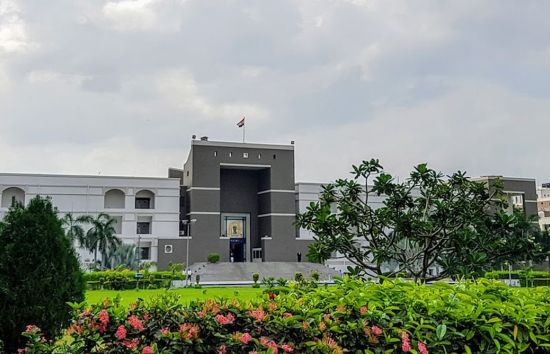Priya Gour
Published on: July 29th 2022 at 19:33 IST
A petition seeking reconsideration of application filed by Petitioner-Accused under Section 227 was recently rejected by the High Court of Gujarat. The Court observed that the trial court’s decision be upheld in absence of any illegality.
The Single Judge Bench comprising of Justice Samir Dave observed that, “Present petition is nothing but a delaying tactic as the application seems to have been deferred on several occasions, whereas the co-accused seem to to have been assassinating and languishing in the prison wherein the charge till date has not been framed or followed by the commencement of the trial due to several applications moved by the petitioner…The very purpose and the object of following the provisions of Sections 226 to 228 of the Cr.P.C is expeditious disposal.“
Further the Court observes that there is sufficient evidence on the basis of which the accused can be prove guilty. With sufficient reasons to believe that the commission of the offence is probable, then charges shall be framed.
The Petitioner was accused under Sections 302, 307, 323, 324, 506(2), 504, 143, 144, 147, 148, 149, 120B and 34 of IPC and Section 135 of the Gujarat Police Act. It was submitted by the petitioner that a conflict arose amongst the caste members of the Petitioner, after which several people sustained injuries. The petitioner was arrested and released on bail lately.
The petitioner claimed that the trial court did not follow due procedure under Section 226 CrPC.
The above claim was rejected by the prosecution, submitting that all necessary documents were presented. The Petitioner challenged this order before the instant Bench on the ground that there was no material factor against him. Under Section 227 of CrPC, the person shall be discharged if there was no sufficient ground against him. However, the APP insisted that documentary material along with the charge-sheet showed that the Petitioner had committed the offence for which he was supposed to be tried.
However, the Court denied the above claim as there was sufficient evidence presented against him. Relying of the case of State of Bihar v Ramesh Singh, Justice Dave reiterated that, “If the scales of pan as to the guilt or innocence of the accused are something like even at the conclusion of the, trial, then, on the theory of benefit of doubt the case is to end in his acquittal.”
“But, if, on the other hand, it is so at the initial stage of making an order under Section 227 or Section 228, then in such a situation ordinarily and generally the order which will have to be made will be one under Section 228 (framing of charge) and not under Section 227.”
As a result the court held the above application as a measure to delay the trial and hence, it was rejected.

